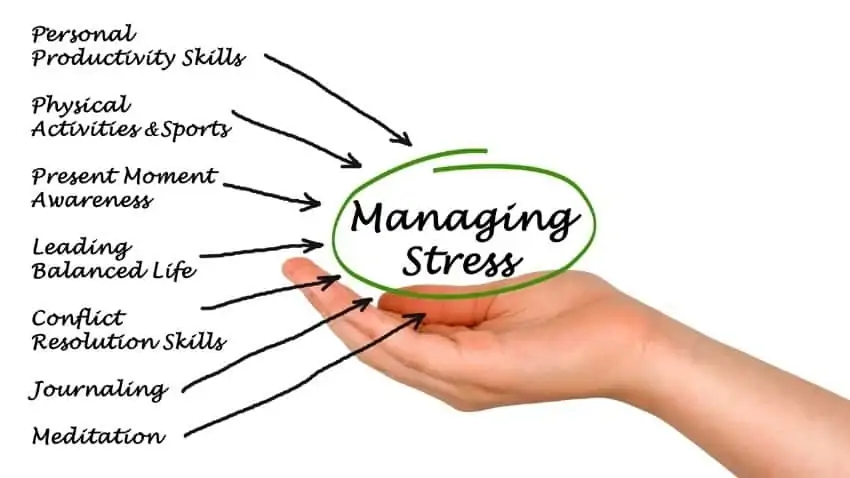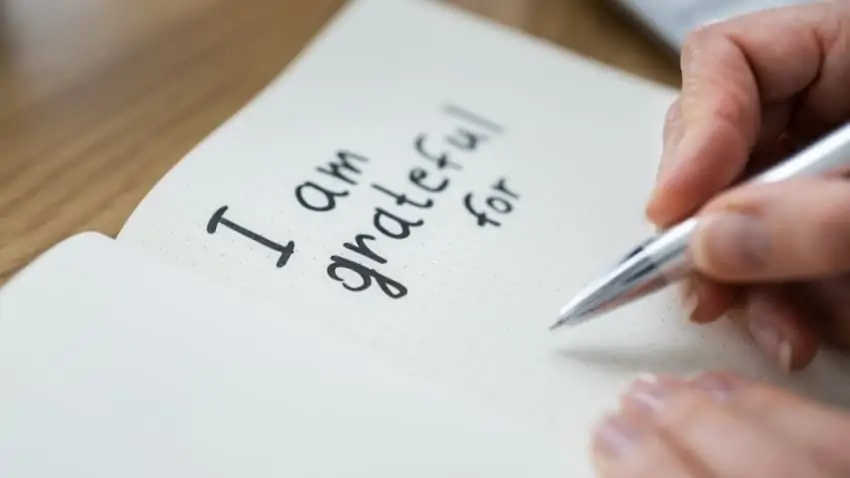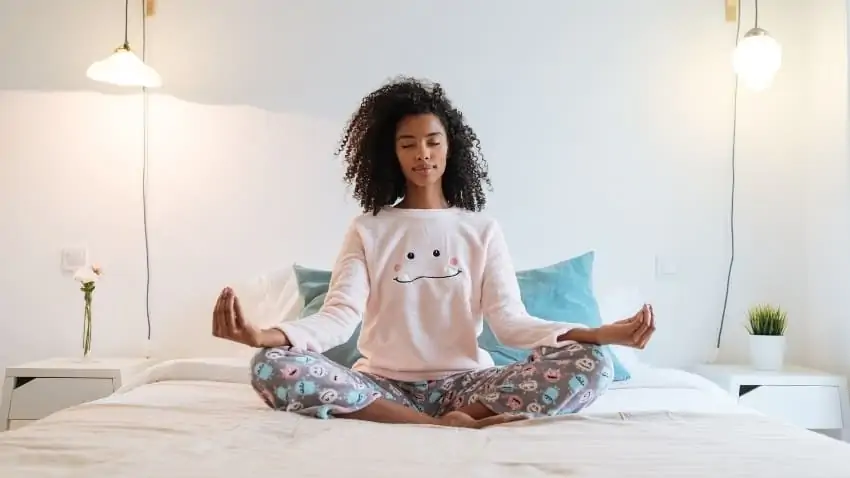Do you often find yourself feeling stressed and anxious? Do your muscles feel tense or rigid?
This blog post is about the benefits of stress management, relaxation techniques, and how to start this process.
Stress can be a serious issue that causes long term health problems. If you’re looking for some quick relief from stress, we have plenty of easy ways to help you relax!
Stress is a part of life. Whether it’s from work, school, family or other sources, stress can be found in all aspects of our lives.

The good news is that there are plenty of ways to manage stress!
Today we will talk about relaxation techniques and the benefits they provide for stress management.
Benefits of Stress Management
Stress is one of the most common conditions affecting people in today’s fast-paced world. Luckily, there are many ways to manage it and keep stress at bay.
Stress management allows you to take control of feelings like anger and bring balance back into your life – how great does that sound?
So if this sounds like you then it is time to try out some relaxation techniques and benefits of stress management.
There are many benefits associated with stress management including:
- better relationships with others (less anger)
- increased self esteem/self confidence
- clearer thinking patterns & improved mental health
- lower blood pressure levels due to less anxiety about day to day activities
- higher productivity
Is Stress Good For You?
You may be thinking, “I like stress!” and you wouldn’t be alone.
Not all stress is bad.
Sometimes stressful situations in our lives cause us to become more motivated, focused on a task or goal, or simply inspired or invigorated to achieve a vision. We become driven.
Is it stressful? Yes, but positively for us physically and mentally.

How we choose to deal with any stressor, good or bad, allows us opportunities for growth and learning.
Stress has been shown to boost your creativity and productivity levels – but only up to a point.
When we experience chronic stress it can lead to health problems such as heart disease, anxiety or depression.
If stress becomes overwhelming or chronic, it may be time to seek out help.
Try these techniques mentioned below, and don’t let stress win!
Finding Ways to Manage Stress and Reduce It
Sometimes it all gets to be just a little too much. The world spins at dizzying speeds while we desperately try to hold on and maintain.
Stress can be a killer — literally.
So when we recognize we’re under attack by worries and anxieties, it’s time to take action to reduce the physical manifestations of stress on our bodies and minds.
It’s important to modify our lifestyles and use spot techniques to reduce tension as necessary.

Systemically, stress can affect heart health, the gut microbiome, mood, and even mental health.
But it can also affect our relationships, our jobs, and potentially our self-esteem.
Improving our overall quality of life is one of the biggest benefits of stress management.
Lifestyle Changes
Let’s start with some lifestyle changes that might help.
None of these modifications deal with the root causes of the stressors, but they may assist our bodies to deal with the effects of stress.
Exercise
Exercising while we feel stressed helps us deal with excess cortisol levels in our bodies.
It actually allows us to act on the “fight-or-flight” instinct by physically moving and nearly any form of exercise will do the trick, from walking to yoga.

Need some easy activity ideas?
- Take a 10-minute walk while playing Pokemon Go with your kids
- Try a bike ride.
- Go swimming.
- Dance it out!
- Hit the gym and circuit train.
- Try boxing.
The key is to find any exercise that will move large muscle groups.
But even less intense forms of exercise, like yoga, tai chi, stretching, gardening, and housework are good for you too!
Scheduling regular daily exercise can actually decrease the incidence of anxiety by as much as 18% and depression by as much as 29%, according to a Dutch study from 2006.
Additionally, exercise has another strong effect. It releases endorphins in the body, and they’re natural stress inhibitors in addition to being pain relievers and appetite suppressants.
While exercise is one way the body releases endorphins, several other techniques on this list also release endorphins.
Reduce Caffeine Intake
Many of us start the day with coffee or tea. But for folks who feel chronically stressed, it might be time to cut back on the caffeine.

Caffeine acts as a stimulant and causes the body to release cortisol — the stress hormone.
Yet, as strange as it may sound, for people who don’t regularly consume caffeine, small amounts of caffeine may take up adenosine receptors in the brain that react to stress and help some people feel less stressed.
Spend More Time With Family, Friends, and Pets
Time with companion animals or other loved ones prompts our brains to produce oxytocin, which naturally relieves stress.
So, in addition to the support we may garner from our social networks, we obtain natural tension relief from the warm fuzzy feelings we harbor for others.

Increased oxytocin not only reduces cortisol but also decreases blood pressure and heart rate.
Practice Gratitude and Kindness
We can change our focus by practicing gratitude and kindness, either randomly or in a more targeted fashion.
In practice, researchers have found this practice enhances positive emotions and decreases negative emotions, including stress.
We can practice positivity towards individuals, communities, or globally by becoming involved in environmental projects.
Journaling, Blogging, and Counseling
Along the same lines as practicing gratitude and kindness, writing about our stressors lets us examine them more logically.
If problems prompt stress, journaling allows us to look at different aspects of those problems.

Journaling may also help if we ultimately decide to seek counseling because it can help us organize our thoughts and communicate more clearly.
If you have a hard time coming up with what to write, try gratitude journals with prompts to help get you started.
So, how much is therapy? It really depends on the type of counseling we seek. Online counseling and group sessions can be very affordable and fit individual schedules, for instance.
Relaxation Techniques
There are many different types of relaxation techniques out there including deep breathing exercises, meditation and yoga.
Each has their own unique benefits for managing your stress levels on a day-to-day basis.
Meditation helps you focus on ONE thing. It centers your thoughts so that they’re not racing around uncontrollably like they do when you’re stressed out by something else happening in your life at the time (e.g., work).
Deep breathing exercises help you focus on your breath and slow down the rate of your heart to give yourself a feeling of calmness.
It has been said that deep breathing releases happy hormones and helps with anxiety and tension.

Yoga, as we all know, helps improve flexibility and center our bodies so that we can feel at peace within ourselves.
Spot Stress Relaxation Techniques
Lifestyle changes could make all the difference for those who suffer chronic stress. But maybe all we need are some spot techniques to bring pressure under control.
What sorts of spot stress relaxation techniques might apply?
- Deep Breathing — Deep breathing can help us bring stress under control very quickly and control anxiety. There are a variety of techniques. Some are used in conjunction with yoga poses.
- Yoga — Certain Yoga positions and techniques seem to help provide relief almost instantly. A short, simple 15-minute yoga session can relieve tension. Naam Yoga provides pressure points on the hands, which may help within minutes.
- Aromatherapy — Lavender, bergamot, citrus, rose, vetiver, and chamomile essential oils can assist in easing stress. Breathing in the scents can foster a sense of calm and well-being.
- Laugh — Laughter really is the best medicine. Try videos or movie clips. Tell bad jokes with friends or just be silly together.
- Soothing Music — Listening to relaxing music, especially some of the binaural beat music specially designed to promote calm and relaxation, may help diffuse tension and anxiety.
We do not claim to be doctors or healthcare providers. You are fully responsible for any actions you take and any consequences that occur as a result of anything you read on this website. However, we hope you find our articles useful and informative. We do our best to provide accurate and up-to-date information, but we cannot guarantee all articles will be free from error. Please use at your own risk and seek appropriate guidance from a qualified healthcare provider regarding any specific questions you may have.